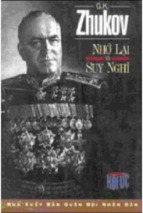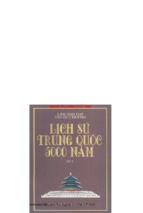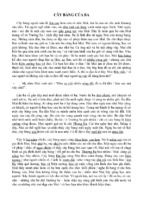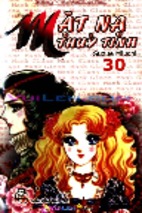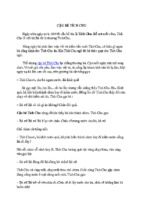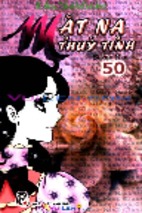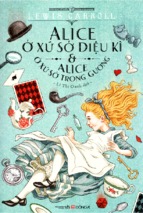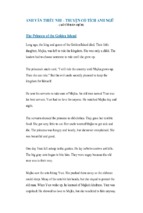The Aspern Papers
1
ELECBOOK CLASSICS
The Aspern
Papers
Henry James
Henry James
Elecbook Classics
The Aspern Papers
2
ELECBOOK CLASSICS
ebc0225, asprn10.pdf. Henry James: The Aspern Papers
This Project Gutenberg public domain text has been produced in
Portable Document Format (PDF) by the Electric Book Company. ➤
You will need the Acrobat + Search version of the Acrobat Reader to
make use of the full search facilities. Click here for details of how to
get your free copy of Acrobat Reader and how to get
the best from your PDF book. ➤
The Electric Book Company 2000
The Electric Book Company Ltd
20 Cambridge Drive, London SE12 8AJ, UK
www.elecbook.com
Henry James
Elecbook Classics
This page intentionally blank
The Aspern Papers
3
Using Acrobat
T
o view the books you will need Adobe Acrobat Reader, version 3.0 or
higher, installed on your computer. To use the full search functions you
will need the larger Acrobat+Search version, not the simple Acrobat
Reader. If you don't have Acrobat +Search you can download if free from Adobe at:
http://www.adobe.com/prodindex/acrobat/readstep.html.
Follow the instructions to make sure you get the correct version.
Acrobat has a range of ways of viewing and searching the books. Take a little
time to experiment and see what suits you best. More detailed assistance if you need
it can be obtained by choosing Acrobat Online Help from the menu bar.
The main controls for Acrobat are the set of menus and icons which you will see
ranged along the top and bottom of the page. Running the mouse cursor across them
will bring up balloon help indicating the function of each.
Viewing: Once you have opened a book, the first thing to do is to choose the best
way of viewing it. When you first open a book, click on the Next Page button and
you will see that the page opens with a set of Bookmarks on the left. The page is set
to the width of its window and you can alter the magnification by clicking on the
dividing bar between page and bookmarks and dragging it to left or right.
You can alter the view by clicking on the Select Page View button at the bottom of
the page or clicking on View on the menu bar at the top of the screen and then
selecting your option. You can also use one of the three pre-set views on the button
bar. (Fit Window, Fit Page and 100% View)
For smaller screens (14- or 15-inch) and lower resolutions, (800 by 600 or below)
you will probably find it is best to view about half a page at a time. If you are in the
Fit Width view you can alter page magnification by dragging the page edge to left
or right. Alternatively you can set an exact figure using the Select Page View button.
Use the PgUp or PgDn keys or the sidebar to move up and down the pages. With
Henry James
Elecbook Classics
The Aspern Papers
4
larger screens and higher resolutions, you can view an entire page at a time by
selecting Fit Page or, if you prefer, two pages (Go to the 1- or 2-page view button at
the bottom of the page).
You can also select and magnify areas of the page by up to 800% with the Magnify
View tool. This is particularly useful for viewing smaller pictures or diagrams.
Searching: To find a word or phrase in the texts click on the Search button. (This is
the icon of a pair of binoculars with a pad behind it—not to be confused with the
much slower Find button which is a simple pair of binoculars) This will open a
dialog box in which you can type the required words. Search highlights all the words
or phrases it finds which match your request. To highlight the next occurrence of a
match in the document, click the Search Next button. To highlight the previous
occurrence of a match in a document, click the Search Previous button.
To refine your search click on the Search button again to bring up the dialog box and
type in your next search term. Hold down the Ctrl key and you will see the ‘Search’
button turn to ‘Refine’. Click on the Refine button and then the Search Next and
Search Previous buttons as before.
Wild cards are * and ?. The asterisk * matches none, one or more characters. For
example searching for prim* would find prime, primal, primate etc as well as prim.
The query ? matches single characters only; searching for t?me would find time and
tame but not theme.
Search Options. These expand or limit the results of searches with single terms and
phrases, with wild card symbols and with Boolean expressions. Click in the option
boxes if you want to use them.
Word stemming finds words that share a stem with the search word.
Thesaurus finds words that have meanings similar to the meaning of the search
word.
Sounds like finds different spellings of proper names.
Match case finds text only when it has the same case as the text you type.
Henry James
Elecbook Classics
The Aspern Papers
5
Project Gutenberg Etexts
The Project Gutenberg Etext of The Aspern Papers by Henry James
Please take a look at the important information in this header.
We encourage you to keep this file on your own disk, keeping an
electronic path open for the next readers. Do not remove this.
**Welcome To The World of Free Plain Vanilla Electronic Texts**
**Etexts Readable By Both Humans and By Computers, Since 1971**
*These Etexts Prepared By Hundreds of Volunteers and Donations*
Information on contacting Project Gutenberg to get Etexts, and
further information is included below. We need your donations.
The Aspern Papers, by Henry James
February, 1995 [Etext #211]
The Project Gutenberg Etext of The Aspern Papers by Henry James
*****This file should be named asprn10.txt or asprn10.zip******
Corrected EDITIONS of our etexts get a new NUMBER, asprn11.txt.
VERSIONS based on separate sources get new LETTER, asprn10a.txt.
This etext was created by Judith Boss, Omaha, Nebraska.
The equipment: an IBM-compatible 486/50, a Hewlett-Packard
ScanJet IIc flatbed scanner, and Calera Recognition Systems’
M/600 Series Professional OCR software and RISC accelerator board
donated by Calera Recognition Systems.
The text is that of the first American book edition, Macmillan
and Co., 1888.
Project Gutenberg Etexts are usually created from multiple
editions, all of which are in the Public Domain in the United
States, unless a copyright notice is included. Therefore, we
do NOT keep these books in compliance with any particular
paper edition, usually otherwise.
We are now trying to release all our books one month in advance
of the official release dates, for time for better editing.
Please note: neither this list nor its contents are final till
midnight of the last day of the month of any such announcement.
The official release date of all Project Gutenberg Etexts is at
Midnight, Central Time, of the last day of the stated month. A
preliminary version may often be posted for suggestion, comment
and editing by those who wish to do so. To be sure you have an
up to date first edition [xxxxx10x.xxx] please check file sizes
Henry James
Elecbook Classics
The Aspern Papers
6
in the first week of the next month. Since our ftp program has
a bug in it that scrambles the date [tried to fix and failed] a
look at the file size will have to do, but we will try to see a
new copy has at least one byte more or less.
INFORMATION ABOUT PROJECT GUTENBERG
We produce about two million dollars for each hour we work. The
fifty hours is one conservative estimate for how long it we take
to get any etext selected, entered, proofread, edited, copyright
searched and analyzed, the copyright letters written, etc. This
projected audience is one hundred million readers. If our value
per text is nominally estimated at one dollar then we produce $2
million dollars per hour this year as we release thirty-six text
files per month, or 432 more Etexts in 1999 for a total of 2000+
If these reach just 10% of the computerized population, then the
total should reach over 200 billion Etexts given away this year.
The Goal of Project Gutenberg is to Give Away One Trillion Etext
Files by the December 31, 2001. [10,000 x 100,000,000=Trillion]
This is ten thousand titles each to one hundred million readers,
which is only ~5% of the present number of computer users.
At our revised rates of production, we will reach only one-third
of that goal by the end of 2001, or about 3,333 Etexts unless we
manage to get some real funding; currently our funding is mostly
from Michael Hart’s salary at Carnegie-Mellon University, and an
assortment of sporadic gifts; this salary is only good for a few
more years, so we are looking for something to replace it, as we
don’t want Project Gutenberg to be so dependent on one person.
We need your donations more than ever!
All donations should be made to “Project Gutenberg/CMU”: and are
tax deductible to the extent allowable by law. (CMU = CarnegieMellon University).
For these and other matters, please mail to:
Project Gutenberg
P. O. Box 2782
Champaign, IL 61825
When all other email fails try our Executive Director:
Michael S. Hart
We would prefer to send you this information by email.
To access Project Gutenberg etexts, use any Web browser
to view http://promo.net/pg. This site lists Etexts by
author and by title, and includes information about how
to get involved with Project Gutenberg. You could also
download our past Newsletters, or subscribe here. This
is one of our major sites, please email [email protected],
for a more complete list of our various sites.
Henry James
Elecbook Classics
The Aspern Papers
7
To go directly to the etext collections, use FTP or any
Web browser to visit a Project Gutenberg mirror (mirror
sites are available on 7 continents; mirrors are listed
at http://promo.net/pg).
Mac users, do NOT point and click, typing works better.
Example FTP session:
ftp sunsite.unc.edu
login: anonymous
password: your@login
cd pub/docs/books/gutenberg
cd etext90 through etext99
dir [to see files]
get or mget [to get files. . .set bin for zip files]
GET GUTINDEX.?? [to get a year’s listing of books, e.g.,
GUTINDEX.99]
GET GUTINDEX.ALL [to get a listing of ALL books]
INFORMATION PREPARED BY THE PROJECT GUTENBERG LEGAL ADVISOR
***START**THE SMALL PRINT!**FOR PUBLIC DOMAIN ETEXTS**START***
Why is this “Small Print!” statement here? You know: lawyers.
They tell us you might sue us if there is something wrong with
your copy of this etext, even if you got it for free from
someone other than us, and even if what’s wrong is not our
fault. So, among other things, this “Small Print!” statement
disclaims most of our liability to you. It also tells you how
you can distribute copies of this etext if you want to.
*BEFORE!* YOU USE OR READ THIS ETEXT
By using or reading any part of this PROJECT GUTENBERG-tm
etext, you indicate that you understand, agree to and accept
this “Small Print!” statement. If you do not, you can receive
a refund of the money (if any) you paid for this etext by
sending a request within 30 days of receiving it to the person
you got it from. If you received this etext on a physical
medium (such as a disk), you must return it with your request.
ABOUT PROJECT GUTENBERG-TM ETEXTS
This PROJECT GUTENBERG-tm etext, like most PROJECT GUTENBERGtm etexts, is a “public domain” work distributed by Professor
Michael S. Hart through the Project Gutenberg Association at
Carnegie-Mellon University (the “Project”). Among other
things, this means that no one owns a United States copyright
on or for this work, so the Project (and you!) can copy and
distribute it in the United States without permission and
without paying copyright royalties. Special rules, set forth
below, apply if you wish to copy and distribute this etext
under the Project’s “PROJECT GUTENBERG” trademark.
To create these etexts, the Project expends considerable
Henry James
Elecbook Classics
The Aspern Papers
8
efforts to identify, transcribe and proofread public domain
works. Despite these efforts, the Project’s etexts and any
medium they may be on may contain “Defects”. Among other
things, Defects may take the form of incomplete, inaccurate or
corrupt data, transcription errors, a copyright or other
intellectual property infringement, a defective or damaged
disk or other etext medium, a computer virus, or computer
codes that damage or cannot be read by your equipment.
LIMITED WARRANTY; DISCLAIMER OF DAMAGES
But for the “Right of Replacement or Refund” described below,
[1] the Project (and any other party you may receive this
etext from as a PROJECT GUTENBERG-tm etext) disclaims all
liability to you for damages, costs and expenses, including
legal fees, and [2] YOU HAVE NO REMEDIES FOR NEGLIGENCE OR
UNDER STRICT LIABILITY, OR FOR BREACH OF WARRANTY
OR CONTRACT, INCLUDING BUT NOT LIMITED TO
INDIRECT, CONSEQUENTIAL, PUNITIVE OR INCIDENTAL
DAMAGES, EVEN IF YOU GIVE NOTICE OF THE
POSSIBILITY OF SUCH DAMAGES.
If you discover a Defect in this etext within 90 days of
receiving it, you can receive a refund of the money (if any)
you paid for it by sending an explanatory note within that
time to the person you received it from. If you received it
on a physical medium, you must return it with your note, and
such person may choose to alternatively give you a replacement
copy. If you received it electronically, such person may
choose to alternatively give you a second opportunity to
receive it electronically.
THIS ETEXT IS OTHERWISE PROVIDED TO YOU “AS-IS”. NO OTHER
WARRANTIES OF ANY KIND, EXPRESS OR IMPLIED, ARE MADE TO
YOU AS TO THE ETEXT OR ANY MEDIUM IT MAY BE ON, INCLUDING
BUT NOT LIMITED TO WARRANTIES OF MERCHANTABILITY
OR FITNESS FOR A PARTICULAR PURPOSE.
Some states do not allow disclaimers of implied warranties or
the exclusion or limitation of consequential damages, so the
above disclaimers and exclusions may not apply to you, and you
may have other legal rights.
INDEMNITY
You will indemnify and hold the Project, its directors,
officers, members and agents harmless from all liability, cost
and expense, including legal fees, that arise directly or
indirectly from any of the following that you do or cause:
[1] distribution of this etext, [2] alteration, modification,
or addition to the etext, or [3] any Defect.
DISTRIBUTION UNDER “PROJECT GUTENBERG-tm”
Henry James
Elecbook Classics
The Aspern Papers
9
You may distribute copies of this etext electronically, or by
disk, book or any other medium if you either delete this
“Small Print!” and all other references to Project Gutenberg,
or:
[1]
Only give exact copies of it. Among other things, this
requires that you do not remove, alter or modify the
etext or this “small print!” statement. You may however,
if you wish, distribute this etext in machine readable
binary, compressed, mark-up, or proprietary form,
including any form resulting from conversion by word processing or hypertext software, but only so long as
*EITHER*:
[*] The etext, when displayed, is clearly readable, and
does *not* contain characters other than those
intended by the author of the work, although tilde
(~), asterisk (*) and underline (_) characters may
be used to convey punctuation intended by the
author, and additional characters may be used to
indicate hypertext links; OR
[*] The etext may be readily converted by the reader at
no expense into plain ASCII, EBCDIC or equivalent
form by the program that displays the etext (as is
the case, for instance, with most word processors);
OR
[*] You provide, or agree to also provide on request at
no additional cost, fee or expense, a copy of the
etext in its original plain ASCII form (or in EBCDIC
or other equivalent proprietary form).
[2]
Honor the etext refund and replacement provisions of this
“Small Print!” statement.
[3]
Pay a trademark license fee to the Project of 20% of the
net profits you derive calculated using the method you
already use to calculate your applicable taxes. If you
don’t derive profits, no royalty is due. Royalties are
payable to “Project Gutenberg Association/Carnegie-Mellon
University” within the 60 days following each
date you prepare (or were legally required to prepare)
your annual (or equivalent periodic) tax return.
WHAT IF YOU *WANT* TO SEND MONEY EVEN IF YOU DON’T HAVE TO?
The Project gratefully accepts contributions in money, time,
scanning machines, OCR software, public domain etexts, royalty
free copyright licenses, and every other sort of contribution
you can think of. Money should be paid to “Project Gutenberg
Association / Carnegie-Mellon University”.
*END*THE SMALL PRINT! FOR PUBLIC DOMAIN ETEXTS*Ver.04.29.93*END*
Henry James
Elecbook Classics
The Aspern Papers
10
The Aspern Papers
Henry James
Henry James
Elecbook Classics
The Aspern Papers
11
Contents
Click on number to go to page
Project Gutenberg Etexts.................................................................................5
Contents ........................................................................................................11
I .....................................................................................................................12
II ....................................................................................................................21
III...................................................................................................................29
IV ..................................................................................................................39
V....................................................................................................................49
VI ..................................................................................................................62
VII .................................................................................................................78
VIII................................................................................................................90
IX ................................................................................................................103
Henry James
Elecbook Classics
The Aspern Papers
12
I
had taken Mrs. Prest into my confidence; in truth without her I should
have made but little advance, for the fruitful idea in the whole business
dropped from her friendly lips. It was she who invented the short cut,
who severed the Gordian knot. It is not supposed to be the nature of women
to rise as a general thing to the largest and most liberal view—I mean of a
practical scheme; but it has struck me that they sometimes throw off a bold
conception—such as a man would not have risen to—with singular serenity.
“Simply ask them to take you in on the footing of a lodger”—I don’t think
that unaided I should have risen to that. I was beating about the bush, trying
to be ingenious, wondering by what combination of arts I might become an
acquaintance, when she offered this happy suggestion that the way to
become an acquaintance was first to become an inmate. Her actual
knowledge of the Misses Bordereau was scarcely larger than mine, and
indeed I had brought with me from England some definite facts which were
new to her. Their name had been mixed up ages before with one of the
greatest names of the century, and they lived now in Venice in obscurity, on
very small means, unvisited, unapproachable, in a dilapidated old palace on
an out-of-the-way canal: this was the substance of my friend’s impression of
them. She herself had been established in Venice for fifteen years and had
done a great deal of good there; but the circle of her benevolence did not
include the two shy, mysterious and, as it was somehow supposed, scarcely
respectable Americans (they were believed to have lost in their long exile all
national quality, besides having had, as their name implied, some French
strain in their origin), who asked no favors and desired no attention. In the
early years of her residence she had made an attempt to see them, but this
had been successful only as regards the little one, as Mrs. Prest called the
I
Henry James
Elecbook Classics
The Aspern Papers
13
niece; though in reality as I afterward learned she was considerably the
bigger of the two. She had heard Miss Bordereau was ill and had a suspicion
that she was in want; and she had gone to the house to offer assistance, so
that if there were suffering (and American suffering), she should at least not
have it on her conscience. The “little one” received her in the great cold,
tarnished Venetian sala, the central hall of the house, paved with marble and
roofed with dim crossbeams, and did not even ask her to sit down. This was
not encouraging for me, who wished to sit so fast, and I remarked as much to
Mrs. Prest. She however replied with profundity, “Ah, but there’s all the
difference: I went to confer a favor and you will go to ask one. If they are
proud you will be on the right side.” And she offered to show me their house
to begin with—to row me thither in her gondola. I let her know that I had
already been to look at it half a dozen times; but I accepted her invitation, for
it charmed me to hover about the place. I had made my way to it the day
after my arrival in Venice (it had been described to me in advance by the
friend in England to whom I owed definite information as to their possession
of the papers), and I had besieged it with my eyes while I considered my
plan of campaign. Jeffrey Aspern had never been in it that I knew of; but
some note of his voice seemed to abide there by a roundabout implication, a
faint reverberation.
Mrs. Prest knew nothing about the papers, but she was interested in my
curiosity, as she was always interested in the joys and sorrows of her friends.
As we went, however, in her gondola, gliding there under the sociable hood
with the bright Venetian picture framed on either side by the movable
window, I could see that she was amused by my infatuation, the way my
interest in the papers had become a fixed idea. “One would think you
expected to find in them the answer to the riddle of the universe,” she said;
and I denied the impeachment only by replying that if I had to choose
between that precious solution and a bundle of Jeffrey Aspern’s letters I
Henry James
Elecbook Classics
The Aspern Papers
14
knew indeed which would appear to me the greater boon. She pretended to
make light of his genius, and I took no pains to defend him. One doesn’t
defend one’s god: one’s god is in himself a defense. Besides, today, after his
long comparative obscuration, he hangs high in the heaven of our literature,
for all the world to see; he is a part of the light by which we walk. The most
I said was that he was no doubt not a woman’s poet: to which she rejoined
aptly enough that he had been at least Miss Bordereau’s. The strange thing
had been for me to discover in England that she was still alive: it was as if I
had been told Mrs. Siddons was, or Queen Caroline, or the famous Lady
Hamilton, for it seemed to me that she belonged to a generation as extinct.
“Why, she must be tremendously old—at least a hundred,” I had said; but on
coming to consider dates I saw that it was not strictly necessary that she
should have exceeded by very much the common span. Nonetheless she was
very far advanced in life, and her relations with Jeffrey Aspern had occurred
in her early womanhood. “That is her excuse,” said Mrs. Prest, halfsententiously and yet also somewhat as if she were ashamed of making a
speech so little in the real tone of Venice. As if a woman needed an excuse
for having loved the divine poet! He had been not only one of the most
brilliant minds of his day—and in those years, when the century was young,
there were, as everyone knows, many—but one of the most genial men and
one of the handsomest.
The niece, according to Mrs. Prest, was not so old, and she risked the
conjecture that she was only a grandniece. This was possible; I had nothing
but my share in the very limited knowledge of my English fellow worshipper
John Cumnor, who had never seen the couple. The world, as I say, had
recognized Jeffrey Aspern, but Cumnor and I had recognized him most. The
multitude, today, flocked to his temple, but of that temple he and I regarded
ourselves as the ministers. We held, justly, as I think, that we had done more
for his memory than anyone else, and we had done it by opening lights into
Henry James
Elecbook Classics
The Aspern Papers
15
his life. He had nothing to fear from us because he had nothing to fear from
the truth, which alone at such a distance of time we could be interested in
establishing. His early death had been the only dark spot in his life, unless
the papers in Miss Bordereau’s hands should perversely bring out others.
There had been an impression about 1825 that he had “treated her badly,”
just as there had been an impression that he had “served,” as the London
populace says, several other ladies in the same way. Each of these cases
Cumnor and I had been able to investigate, and we had never failed to acquit
him conscientiously of shabby behavior. I judged him perhaps more
indulgently than my friend; certainly, at any rate, it appeared to me that no
man could have walked straighter in the given circumstances. These were
almost always awkward. Half the women of his time, to speak liberally, had
flung themselves at his head, and out of this pernicious fashion many
complications, some of them grave, had not failed to arise. He was not a
woman’s poet, as I had said to Mrs. Prest, in the modern phase of his
reputation; but the situation had been different when the man’s own voice
was mingled with his song. That voice, by every testimony, was one of the
sweetest ever heard. “Orpheus and the Maenads!” was the exclamation that
rose to my lips when I first turned over his correspondence. Almost all the
Maenads were unreasonable, and many of them insupportable; it struck me
in short that he was kinder, more considerate than, in his place—if I could
imagine myself in such a place!—I should have been.
It was certainly strange beyond all strangeness, and I shall not take up
space with attempting to explain it, that whereas in all these other lines of
research we had to deal with phantoms and dust, the mere echoes of echoes,
the one living source of information that had lingered on into our time had
been unheeded by us. Every one of Aspern’s contemporaries had, according
to our belief, passed away; we had not been able to look into a single pair of
eyes into which his had looked or to feel a transmitted contact in any aged
Henry James
Elecbook Classics
The Aspern Papers
16
hand that his had touched. Most dead of all did poor Miss Bordereau appear,
and yet she alone had survived. We exhausted in the course of months our
wonder that we had not found her out sooner, and the substance of our
explanation was that she had kept so quiet. The poor lady on the whole had
had reason for doing so. But it was a revelation to us that it was possible to
keep so quiet as that in the latter half of the nineteenth century—the age of
newspapers and telegrams and photographs and interviewers. And she had
taken no great trouble about it either: she had not hidden herself away in an
undiscoverable hole; she had boldly settled down in a city of exhibition. The
only secret of her safety that we could perceive was that Venice contained so
many curiosities that were greater than she. And then accident had somehow
favored her, as was shown for example in the fact that Mrs. Prest had never
happened to mention her to me, though I had spent three weeks in Venice—
under her nose, as it were—five years before. Mrs. Prest had not mentioned
this much to anyone; she appeared almost to have forgotten she was there.
Of course she had not the responsibilities of an editor. It was no explanation
of the old woman’s having eluded us to say that she lived abroad, for our
researches had again and again taken us—not only by correspondence but by
personal inquiry—to France, to Germany, to Italy, in which countries, not
counting his important stay in England, so many of the too few years of
Aspern’s career were spent. We were glad to think at least that in all our
publishings—some people consider I believe that we have overdone them—
we had only touched in passing and in the most discreet manner on Miss
Bordereau’s connection. Oddly enough, even if we had had the material—
and we often wondered what had become of it—it would have been the most
difficult episode to handle.
The gondola stopped, the old palace was there; it was a house of the class
which in Venice carries even in extreme dilapidation the dignified name.
“How charming! It’s gray and pink!” my companion exclaimed; and that is
Henry James
Elecbook Classics
The Aspern Papers
17
the most comprehensive description of it. It was not particularly old, only
two or three centuries; and it had an air not so much of decay as of quiet
discouragement, as if it had rather missed its career. But its wide front, with
a stone balcony from end to end of the piano nobile or most important floor,
was architectural enough, with the aid of various pilasters and arches; and
the stucco with which in the intervals it had long ago been endued was rosy
in the April afternoon. It overlooked a clean, melancholy, unfrequented
canal, which had a narrow riva or convenient footway on either side. “I don’t
know why—there are no brick gables,” said Mrs. Prest, “but this corner has
seemed to me before more Dutch than Italian, more like Amsterdam than
like Venice. It’s perversely clean, for reasons of its own; and though you can
pass on foot scarcely anyone ever thinks of doing so. It has the air of a
Protestant Sunday. Perhaps the people are afraid of the Misses Bordereau. I
daresay they have the reputation of witches.”
I forget what answer I made to this—I was given up to two other
reflections. The first of these was that if the old lady lived in such a big,
imposing house she could not be in any sort of misery and therefore would
not be tempted by a chance to let a couple of rooms. I expressed this idea to
Mrs. Prest, who gave me a very logical reply. “If she didn’t live in a big
house how could it be a question of her having rooms to spare? If she were
not amply lodged herself you would lack ground to approach her. Besides, a
big house here, and especially in this quartier perdû, proves nothing at all: it
is perfectly compatible with a state of penury. Dilapidated old palazzi, if you
will go out of the way for them, are to be had for five shillings a year. And
as for the people who live in them—no, until you have explored Venice
socially as much as I have you can form no idea of their domestic desolation.
They live on nothing, for they have nothing to live on.” The other idea that
had come into my head was connected with a high blank wall which
appeared to confine an expanse of ground on one side of the house. Blank I
Henry James
Elecbook Classics
The Aspern Papers
18
call it, but it was figured over with the patches that please a painter, repaired
breaches, crumblings of plaster, extrusions of brick that had turned pink with
time; and a few thin trees, with the poles of certain rickety trellises, were
visible over the top. The place was a garden, and apparently it belonged to
the house. It suddenly occurred to me that if it did belong to the house I had
my pretext.
I sat looking out on all this with Mrs. Prest (it was covered with the
golden glow of Venice) from the shade of our felze, and she asked me if I
would go in then, while she waited for me, or come back another time. At
first I could not decide—it was doubtless very weak of me. I wanted still to
think I might get a footing, and I was afraid to meet failure, for it would
leave me, as I remarked to my companion, without another arrow for my
bow. “Why not another?” she inquired as I sat there hesitating and thinking
it over; and she wished to know why even now and before taking the trouble
of becoming an inmate (which might be wretchedly uncomfortable after all,
even if it succeeded), I had not the resource of simply offering them a sum of
money down. In that way I might obtain the documents without bad nights.
“Dearest lady,” I exclaimed, “excuse the impatience of my tone when I
suggest that you must have forgotten the very fact—surely I communicated
it to you—which pushed me to throw myself upon your ingenuity. The old
woman won’t have the documents spoken of; they are personal, delicate,
intimate, and she hasn’t modern notions, God bless her! If I should sound
that note first I should certainly spoil the game. I can arrive at the papers
only by putting her off her guard, and I can put her off her guard only by
ingratiating diplomatic practices. Hypocrisy, duplicity are my only chance. I
am sorry for it, but for Jeffrey Aspern’s sake I would do worse still. First I
must take tea with her; then tackle the main job.” And I told over what had
happened to John Cumnor when he wrote to her. No notice whatever had
been taken of his first letter, and the second had been answered very sharply,
Henry James
Elecbook Classics
The Aspern Papers
19
in six lines, by the niece. “Miss Bordereau requested her to say that she
could not imagine what he meant by troubling them. They had none of Mr.
Aspern’s papers, and if they had had wouldn’t have dreamed of showing
them to anyone on any account whatever. She didn’t know what he was
talking about and begged he would let her alone.” I certainly did not want to
be met that way.
“Well,” said Mrs. Prest after a moment, provokingly, “perhaps after all
they haven’t any of his things. If they deny it flat how are you sure?”
“John Cumnor is sure, and it would take me long to tell you how his
conviction, or his very strong presumption—strong enough to stand against
the old lady’s not unnatural fib—has built itself up. Besides, he makes much
of the internal evidence of the niece’s letter.”
“The internal evidence?”
“Her calling him ‘Mr. Aspern.’”
“I don’t see what that proves.”
“It proves familiarity, and familiarity implies the possession of
mementoes, or relics. I can’t tell you how that ‘Mr.’ touches me—how it
bridges over the gulf of time and brings our hero near to me—nor what an
edge it gives to my desire to see Juliana. You don’t say, ‘Mr.’ Shakespeare.”
“Would I, any more, if I had a box full of his letters?”
“Yes, if he had been your lover and someone wanted them!” And I added
that John Cumnor was so convinced, and so all the more convinced by Miss
Bordereau’s tone, that he would have come himself to Venice on the
business were it not that for him there was the obstacle that it would be
difficult to disprove his identity with the person who had written to them,
which the old ladies would be sure to suspect in spite of dissimulation and a
change of name. If they were to ask him point-blank if he were not their
correspondent it would be too awkward for him to lie; whereas I was
fortunately not tied in that way. I was a fresh hand and could say no without
Henry James
Elecbook Classics



